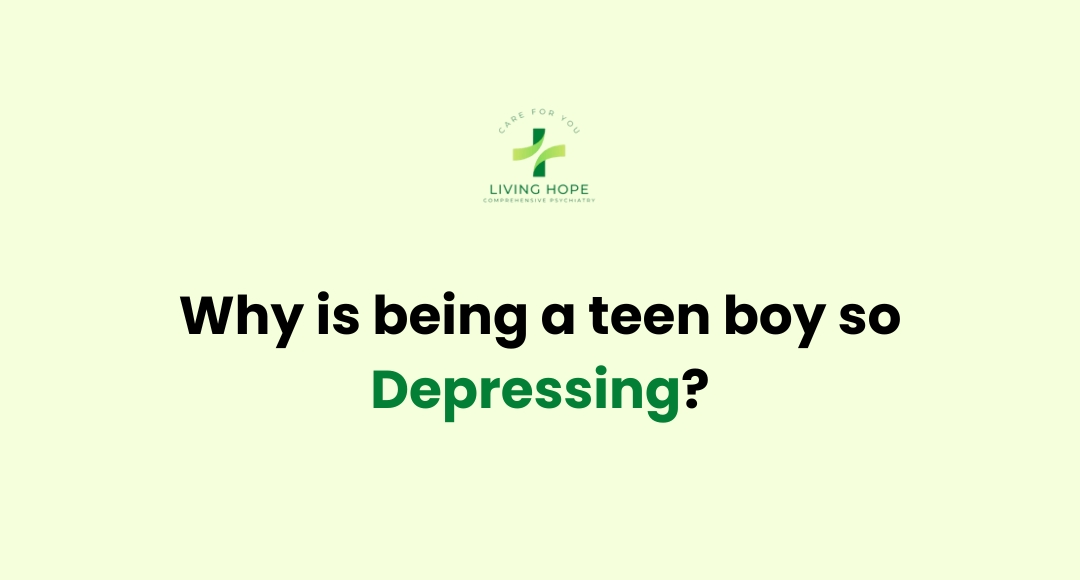Being a teen boy can feel depressing due to a combination of biological changes, emotional development, and social pressures that peak during adolescence.
1. Hormonal Changes and Brain Development
Teenagers experience major hormonal shifts, especially in testosterone and cortisol. These changes affect mood regulation, risk perception, and emotional responses. The teenage brain is still developing — especially the prefrontal cortex, which controls impulse and decision-making — making teens more vulnerable to mood swings and stress.
2. Social Pressure and Gender Expectations
Teen boys are often taught to suppress emotions, avoid vulnerability, and “be tough.” This can create emotional isolation and prevent them from seeking help or expressing sadness, anxiety, or fear. Social media, peer comparisons, and unrealistic standards of masculinity can also worsen self-esteem and mental health.
3. Academic and Future Anxiety
Pressure to succeed in school, choose a career path, or meet family expectations can lead to anxiety and a sense of hopelessness. Teen boys may struggle to express these feelings, leading to bottled-up stress and eventual emotional burnout.
4. Lack of Emotional Outlets
Unlike girls, who may be encouraged to talk about feelings, boys are often not given the same space to process emotions. Without support, they may turn to avoidance, anger, or withdrawal — all of which can mask underlying depression.
When to Seek Help
It’s normal for teens to feel down occasionally, but if sadness, anger, or hopelessness persist for more than two weeks — or if they impact sleep, appetite, school, or relationships — it may be a sign of depression.
Key Signs to Watch for:
- Loss of interest in activities
- Withdrawing from friends or family
- Low energy or fatigue
- Irritability, anger, or mood swings
- Drop in school performance
- Changes in sleep or appetite
- Feelings of worthlessness or hopelessness
Help is available, and things can get better. Early support can make a lasting difference in a teen’s life.



